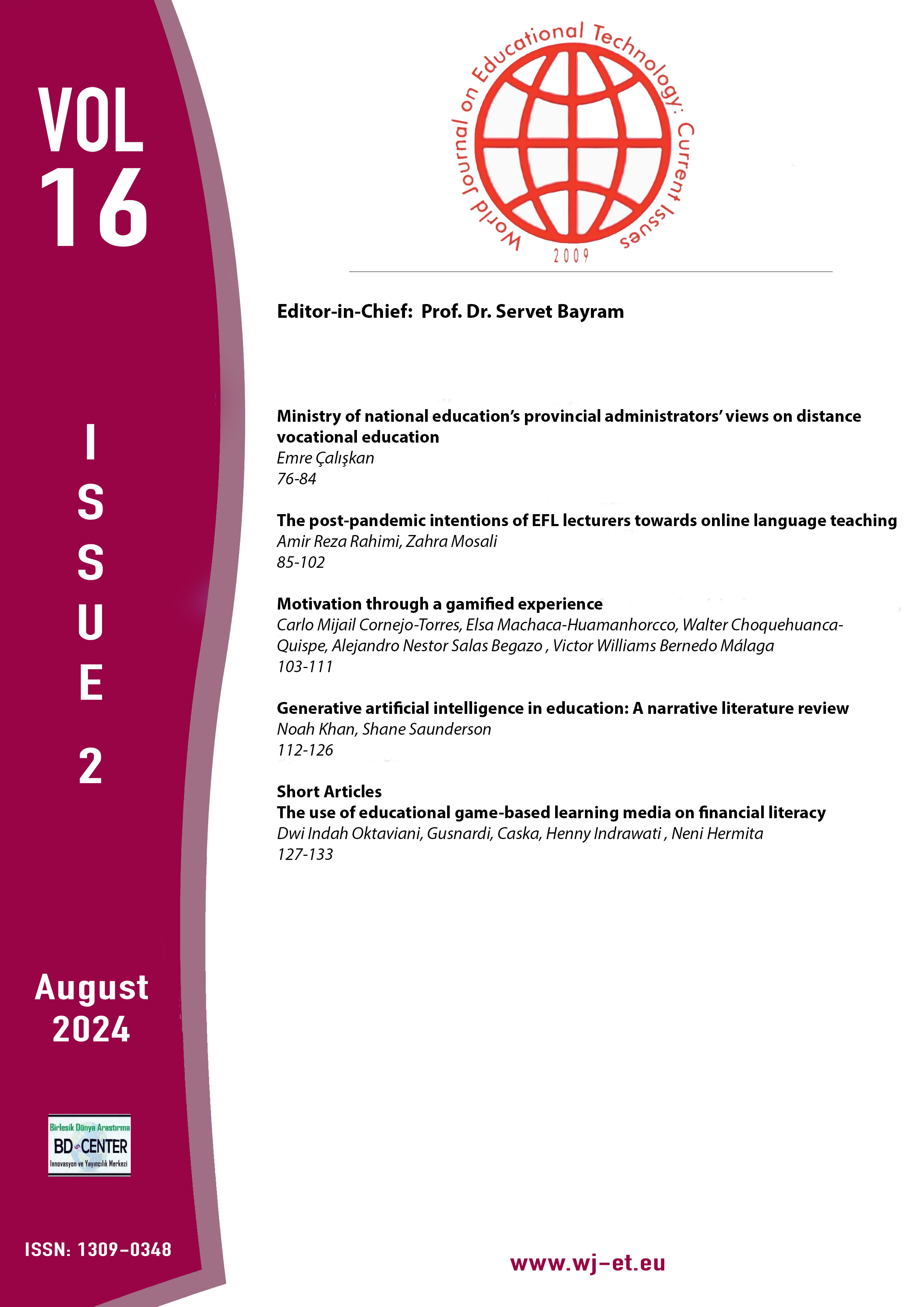Ministry of national education’s provincial administrators’ views on distance vocational education
Main Article Content
Abstract
One of the biggest advantages of technology is that people have the opportunity to access information faster and easier. In this way, people can update their knowledge in the face of constantly changing and self-updating information and improve their existing knowledge by replacing it with new ones. This rapid development has pushed educators to seek new ways in learning-teaching processes, and technology is increasingly being included in our education processes. Among the developed models, the distance education model is the most preferred in our education processes. This study aimed to examine the kind of results that will be obtained when the distance education model is integrated into in-service training. The descriptive survey method was used in the research. The opinions and experiences of the managers were used through the semi-structured interview form on the subject. According to the results of the research, it has been determined that the distance of in-service training does not cause problems in general, but it is not as effective as face-to-face training in terms of socialization and understanding of the subjects.
Keywords: Administrator; distance education; in-service training; Managers; vocational education.
Downloads
Article Details

This work is licensed under a Creative Commons Attribution 4.0 International License.
World Journal on Educational Technology: Current Issues is an Open Access Journal. The copyright holder is the author/s. Licensee Birlesik Dunya Yenilik Arastirma ve Yayincilik Merkezi, North Nicosia, Cyprus. All articles can be downloaded free of charge. Articles published in the Journal are Open-Access articles distributed under CC-BY license [Attribution 4.0 International (CC BY 4.0)].
Birlesik Dunya Yenilik Arastirma ve Yayincilik Merkezi (BD-Center)is a gold open-access publisher. At the point of publication, all articles from our portfolio of journals are immediately and permanently accessible online free of charge. BD-Center articles are published under the CC-BY license [Attribution 4.0 International (CC BY 4.0)], which permits unrestricted use, distribution, and reproduction in any medium, provided the original authors and the source are credited.
